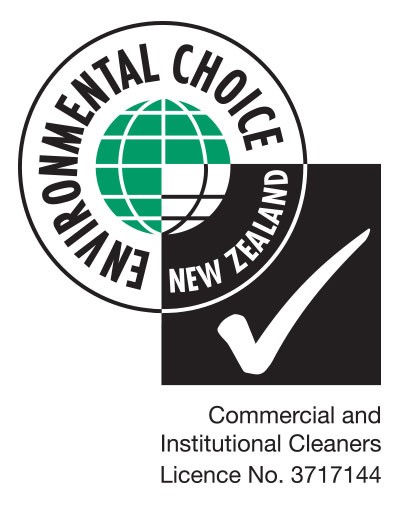Cleaning chemicals gain ECNZ endorsement

One of the range of CrestClean’s five janitorial products that has gained Environmental Choice New Zealand compliance
CrestClean’s green credentials have received a second major endorsement from the country’s official ecolabelling organisation.
The company’s five core janitorial chemicals have now been approved by Environmental Choice New Zealand.
CrestClean’s latest endorsement was hailed as a “significant” achievement by ECNZ, which praised the company for its sustainable practices.
In December CrestClean gained ECNZ accreditation for its services. Those approved services are: Commercial Cleaning, Carpet and Upholstery Cleaning, Pure Water Window Cleaning, Hard Floor Cleaning and Maintenance.
Environmental Choice General Manager Francesca Lipscombe says CrestClean’s zeal in getting its cleaning products licensed, in addition to the licence for its services achieved late last year, was commendable.
“They’re a champion for environmental responsibility across their business and this is a significant achievement for them.
“Cleaning products have a tough job to do and can include some harmful chemicals but Crest have stuck to their beliefs to develop and use a range of cleaners that have minimal environmental impact.
“Their customers – particularly the schools they clean – can be confident the products being used on their floors and in their bathrooms have met stringent third-party standards, and are a better choice for human health and the environment.”
Grant McLauchlan, CrestClean’s Managing Director, said the company had worked hard to develop cleaning products that have a minimal environmental impact.
“This second accreditation dovetails beautifully with our Business Excellence programme. It’s another tick on the journey for CrestClean.
“It’s about looking at every process and every relationship we have as we run our business to ensure we are minimising time, effort and the environment in the way we operate.”
Grant added: “The ECNZ-approved chemicals cover 95 per cent of our cleaning duties. They are less toxic to humans, so they are better for the user and for our customers.
“Our customers throughout New Zealand can have confidence that the chemicals being used as part of CrestClean’s cleaning service have met stringent technical standards and have proven to have a lower environmental impact.”
As part of gaining third party approval, CrestClean’s supplier of cleaning products, Chemical Solutions Ltd, was scrutinised by ECNZ.
Managing Director Terry Morris said: “They audited all our processes, which means they follow a formula sheet that was used to make that particular batch and look at the raw materials to make sure we’re using what we say we’re using.”
Terry said although ECNZ certification was an official endorsement for CrestClean’s core products, the company had already been industry leaders in sustainability.
“CrestClean have had environmental formulas for well over 10 years. They were one of the first commercial cleaners in the country to start using what we call environmental cleaners.”
He said to be compliant with ECNZ standards, CrestClean’s cleaning products had to meet a tough criteria. They were free of volatile organic compounds and did not contain raw materials derived from palm oil
The certified cleaning products were less toxic to human health than other cleaners and better for customers, he added.
“Where possible we always try to use sustainably sourced raw materials. They don’t contain any toxic ingredients, such as solvents or substances that are known carcinogenic compounds.”
CrestClean’s cleaning products were also designed to be diluted by the user, another plus for cutting down on freight costs.
“One thing unique about the CrestClean range is that they are very concentrated,” said Terry.
“It means you are minimising the amount of water that’s being freighted around the country.
And that means you have a smaller carbon footprint.”
